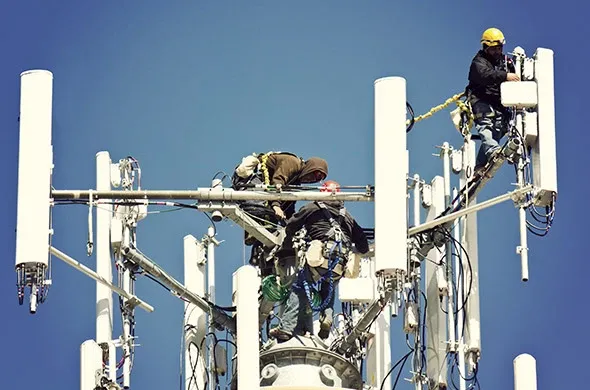In a new analysis, Opensignal has observed that smartphone users in Switzerland experienced worse signal strength when connected to 5G networks than users in neighboring Germany, France, and Italy. Also, they have found a link between the quality of mobile signal strength and average 5G download speeds: the worse the signal strength, the slower the speeds.
Switzerland was the only country of the four with more than 50% of the 5G readings with power levels placing in the “Weak“ or worse categories (below -105 dBm) — compared to 38.3-39.7% of readings in the three neighboring countries. As a result, Swiss users experienced a comparatively diminished 5G mobile experience. The average result of -105.9 dB would rate Switzerland’s average signal strength as Weak (higher than -115 dBm but below -105 dBm), according to Tutela’s signal strength categorization.
Meanwhile, Germany, France, and Italy all placed in the Fair category (higher than -105 dBm but lower than -95 dBm). Because of Switzerland’s electromagnetic field (EMF) regulations, Opensignal is expected to see significantly lower average signal strength in the country. Power level regulations for mobile base stations in Switzerland are one of the strictest in the world, 10 times lower than what the European Union prescribed for its member states.
Switzerland users connected to 5G experienced a signal strength of -104.2 dBm within the range of 0-5 Timing Advance (less than 400 meters). This is significantly lower than in the other three countries, where power levels ranged between -97.7 and -97.9 dBm within the same distance. The signal strength deteriorated substantially for devices farther away from cell sites across all countries in our analysis. Still, users in Switzerland on average saw signal strength 5.4 dBm worse than in Germany, 6.3 dBm lower than in France, and 6.5 dBm lower than in Italy.
Looking at the average 5G download speeds, worse signal strength correlated with declining average 5G download speeds across the analyzed countries. In the case of Switzerland, there was a drop of 41.6% in average download 5G speeds between Excellent signal (above -85 dBm) to Weak (-115 dBm to -105 dBm) — from 306.4 down to 179 Mbps. Users in other countries also experienced significant drops in average 5G download speeds, between the Excellent and Weak signal strengths. For example, Germany saw a decline of 55.9% between these two signal strength categories, France — 44.4%, and Italy — 46.6%.
In Switzerland, more users had lower 5G signal levels than users in other countries covered in the analysis. Looking at the distributions of 5G readings by signal strength categories, Switzerland was the only country with more than 50% of the readings with a Weak or worse signal — compared to 38.3% in Germany, 39.7% in France, and 39.2% in Italy. By contrast, Switzerland was the only market in the analysis with less than 20% of readings with Excellent or Good signal strength.
Mobile operators mitigate the impact of very restrictive power level regulations in Switzerland with an extensive densification strategy and spectrum sharing technology. This adds cost and ironically increases the number of cell tower sites. However, while Swiss operators try to keep up with other 5G markets, Switzerland seems to fall short compared to global leaders. In the latest Benchmarking the Global 5G Experience overview, published in March 2022, Switzerland failed to make it into the top 15 global markets for 5G Download Speed and 5G Peak Download Speed.


















